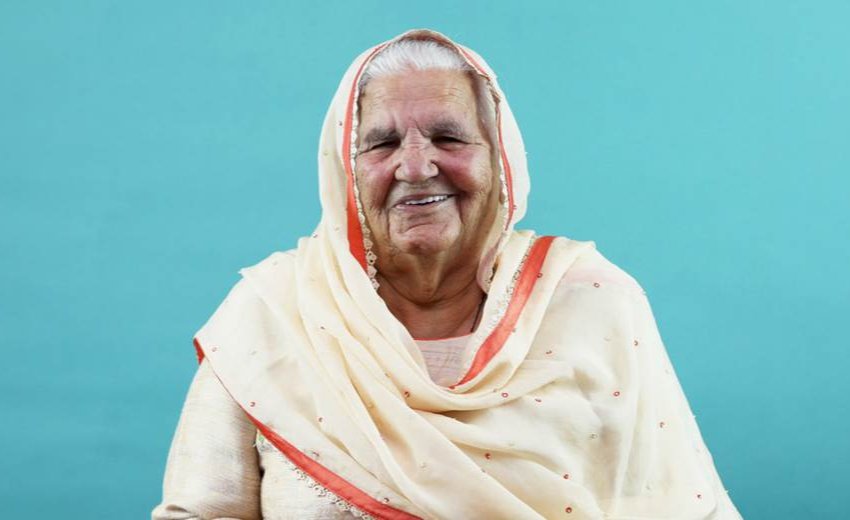This interesting Instagram page brings to light the narratives of strong Sikh women who share the name Kaur .
The Kaur Project was initiated by writer Jessie Kaur Lehail and photographer Saji Kaur Sahota to highlight the unsung stories of strength and resilience from women who have adopted the name Kaur.
A photographer-writer duo from British Columbia, Canada ,they met at a speaking event in early 2015. They were able to bond over feminism, identity politics, and their mutual realization that many women in Sikhism stood in the shadow of their male counterparts. According to Jessie Kaur Lehail, “Women make up 48 percent of the community, and yet our voices are never heard.” She told NBC News, “There is a very minimal conversation about how women have contributed to Sikh history. We’re in the background for Sikh religious events.”
The Kaur Project was launched in April 2015 to address such issues. The website highlights the lives, struggles, and achievements of Sikh women in North America, inspired by the Humans of New York project. The website has been praised for providing Sikh women with a safe online forum where they may tell their personal narratives, exposing readers to the diversity of Sikhism.
Sikhism emphasizes social justice, including gender equality. In Sikh culture, women adopt the name Kaur as their middle or last name to challenge the patriarchal idea that women should adopt their husbands' names, according to Jessie Kaur Lehail. According to Lehail, the feminist elements have eroded over time with cultural constraints overriding religious scripture.She further said, “But this is not what the founder of the religion, Guru Nanak, intended.”
The Kaur Project adds meaning to the significance of the name Kaur, which permits women to discard their surnames and therefore be free of class and caste labels. This also calls into question the age-old rule that women must adopt their husbands' surnames. Furthermore, it permits them to choose a collective name-Kaur Women who participate in the Kaur Project are photographed by Sahota, a photographer. Lehail, who specializes in public relations, then interviews the Sikh women who participate in the project.
Sahota said, “The first question I ask each woman when we sit down for our interview and photography session is, What’s your story?” According to Lehail, it's an opportunity for the women to make themselves visible and tell their stories that aren't often told.
Lehail said to NBC News, “No one asks them how they see themselves as Kaurs or about their journeys as Sikh women.”
There are many topics discussed during the conversation between the women, including how Sikhism has aided them in their careers, families, mental health, and body image. According to Lehail and Sahota, they also extract the woman's struggles as well.
Sahota told NBC News reporters, that the women share their abuse stories, their relationships with Sikhism and their spirituality.
The Kaur Project builds a community of women based on trust. Their interviews and information reveal are very deliberate, Lehail and Sahota said. They ensure that these women feel comfortable sharing their private and painful experiences with the public. Their goal is to empower women, not to create endanger their lives. Therefore, they do not include information about their families, jobs, or spouses in their profiles.
According to Lehail and Sahota, the Kaur Project is intended to be a form of therapy for the women profiled. Their own early experiences with racism and misogyny help them understand the need for such a space.
Lehail says that she never realized that she was different until she was bullied by other kids at a young age. She shared that she was eight years old she and her cousin were accosted by Caucasian girls who wanted to set their hair on fire while they were making their way to the temple across the street from her home. Lehail described the Kaur Project as a showcase of the multilayered identities of being a Kaur woman.
The Kaur Project addresses otherness. The Kaur Project recognizes and celebrates the diversity and expansiveness of Kaur's identity. Among these Kaurs, Kaur Project highlights modern-day heroines. For each Kaur story, thousands more are blazing their own paths. “It’s a learning opportunity for the mainstream about Sikhism and Sikh women,” she said. “But also for Sikh women to learn about themselves.”

